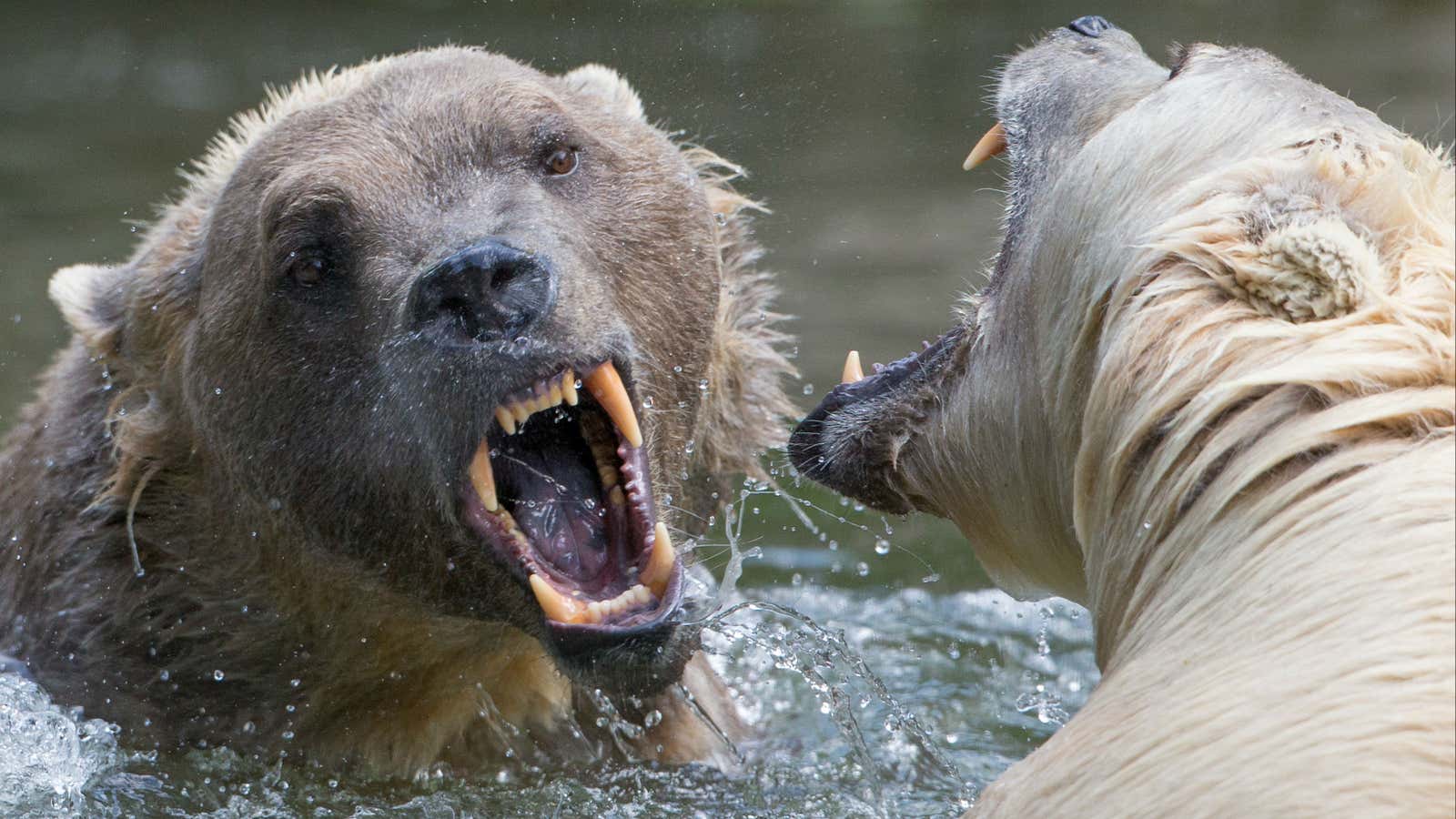The idea of a hybrid polar and grizzly bear may sound cool or terrifying, depending on your opinion. But their appearances in the wild may mean that polar bears are quickly running out of room.
Last week, in the cold corners of Canada’s Hudson Bay, one of these hybrids was shot and killed. Although there hasn’t been genetic testing to confirm the animal is actually a mix of a grizzly and its polar cousin, experts say that its large head and white fur are a dead giveaway. This is only the most recent iteration of these bears. Sightings of these kinds of bears have been reported since 2006 in Canada’s northwest territory.
These bear species aren’t supposed to mate: Polar bears and grizzlies live in different kinds of habitats, the former being more aquatic and in Arctic regions and the latter preferring forested land. According to the Washington Post, as climate change shrinks sea ice and allows forests to spread further north, the domain of grizzly bears is getting larger and larger, allowing these bears to roam into polar bear territory. The bears are engaging in a behavior called ‘flexible mate choice,’ in which animals mate with the best they can, as opposed to not mating at all. Some frogs, birds, and fish do the same thing.
Andrew Derocher, an ecologist at the University of Alberta in Canada, suspects that the appearance of more hybrids is occurring because more male grizzlies are wandering into polar bear country, and encountering female polar bears during mating season. Female grizzlies tend not to wander so far afield, remaining near where they are born. In the short term, more hybrid animals may be bred. ”The other dynamic is that polar bears are losing their southern habitats quite quickly,” Derocher wrote in an email. In about 30 to 40 years, grizzlies may take over.
“The question is not whether hybrids will swamp out the gene pool of polar bears (they won’t), but whether grizzlies will outcompete polar bears in the southern parts of polar bear range and exacerbate the effects of the declining foods,” David Garshelis, an ecologist at the Minnesota Department of Natural Resources, wrote in an email. “Hybrid bears are just a sign that this may be occurring.”
